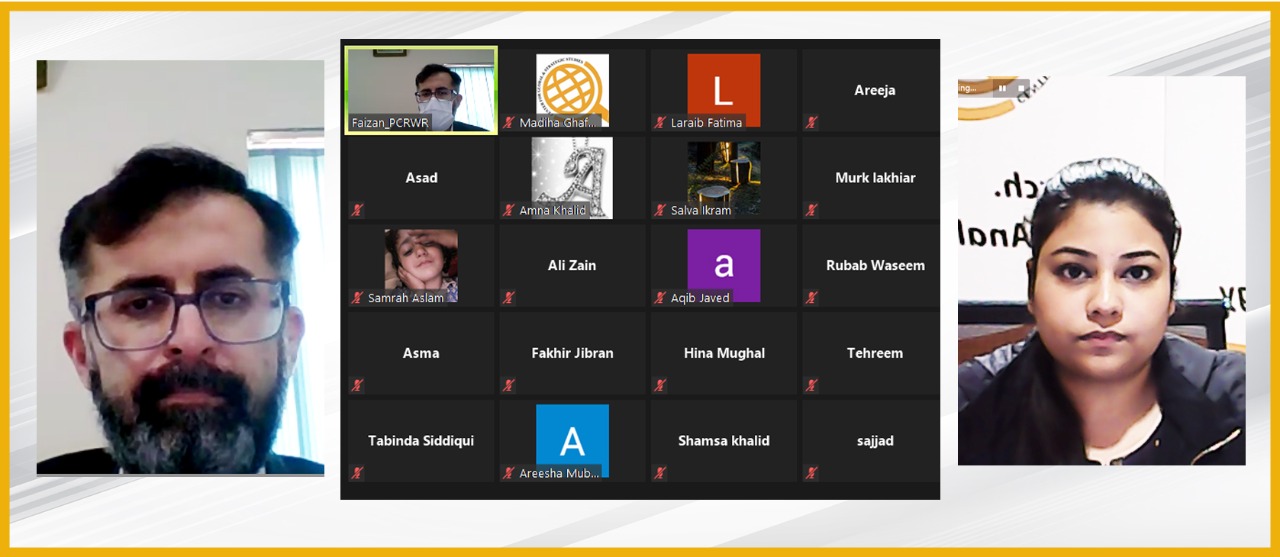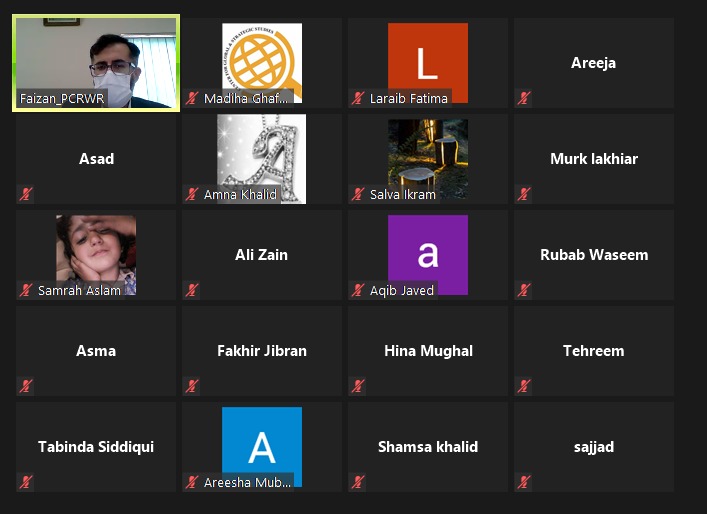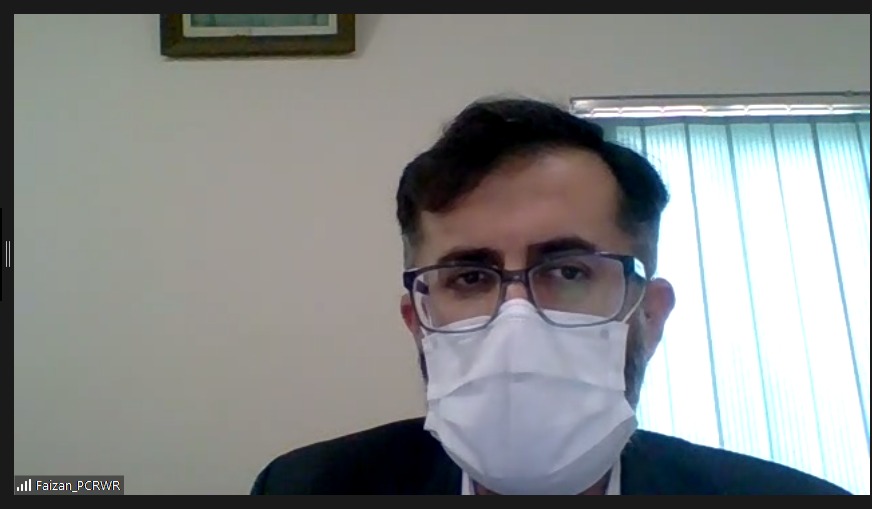Fourth Session of the Online Internship Program, “The Contemporary Non-Traditional Security Challenges” organized by Center for Global & Strategic Studies (CGSS), Islamabad

On 2nd February 2021, fourth Session of the Online Internship Program, “The Contemporary Non-Traditional Security Challenges” organized by Center for Global & Strategic Studies (CGSS), Islamabad was held.
The internship aims to provide an opportunity for students to understand the contemporary global non-traditional security challenges, gauge the existing potential, build resilience and find the solutions to mitigate the daunting impacts of these transnational issues.
The theme for the fourth session was, Water Security as a Top National Security Threat and its impacts on economy, society, and politics and the speaker for this session was Mr. Faizan ul Hassan, Director, Pakistan Council of Research In Water Resources (PCRWR).
Mr. Faizan highlighted the transboundary water challenges in Pakistan. He stated that Pakistan Rivers receives 74% flow from Transboundary Rivers. Pakistan commissioner for Indus water is the only institution dealing with transboundary water.
Compared to transboundary water percentage, professional capacity in dealing such issues is limited. Post Indus Water Treaty scenario, flows in the eastern rivers is almost negligible and there has been a continuous declining trend in rivers Chenab and Jhelum. Transboundary drains also brings all kind of pollutants from India. Kabul River has the same inflows at Nowshera to that of Indus at Tarbela. He also stated that there are also indications that due to huge ground water pumping in Indian Punjab, the groundwater along the Pakistan borders may be affected.
Mr. Faizan explained spatial and temporal trends in river water quality of Pakistan. He stated that the water quality of the Ravi River was found more degraded as compared to Sutlej River. As the river moves downstream and also from high flow season to low flow season, worsens the water quality.
Highlighting the impact of water security on economy, society and politics. Mr. Faizan stated that agriculture has a substantial share in national GDP which is shrinking. Pakistan’s 60% population lives in rural area, directly or indirectly linked to agriculture. Industrial sector use 100% ground water which is also on threat. Lack of robust flow monitoring systems result into mistrust in interprovincial water sharing. Lack of institutional coordination is causing water resources management failure. Due to political interest, water is not considered as an economic good/commodity.
The session was moderated by Ms. Madiha Ghaffar, Media & Communication Manager, CGSS.
It is noteworthy that students from all across Pakistan are enrolled in this Online Internship Program. This program will prove to be a milestone for the students of International Relations & related fields to understand the contemporary dynamics of Non-Traditional Security Threats.


